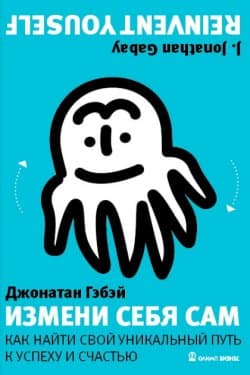Нелюбимая дочь - Пег Стрип (2019)
-
Год:2019
-
Название:Нелюбимая дочь
-
Автор:
-
Жанр:
-
Язык:Русский
-
Страниц:150
-
Рейтинг:
-
Ваша оценка:
Нелюбимая дочь - Пег Стрип читать онлайн бесплатно полную версию книги
Roisman, Glenn, Padrōn, Elena, Sroufe, Alan, Egeland, Byron. Earned-Secure Attachment Status in Retrospect and Prospect // Child Development, 2002, 73 (4), pp. 1204−1219.
Senay, Ibrahim, Albarracín, Dolores, Noguchi, Kenji. Motivating Goal-Directed Behavior Through Introspective Self-Talk: The Role of the Interrogative Form of Simple Future Tense // Psychological Science, 2010, 21 (4), pp. 499−504.
Sharot, Tali, Kanai, Ryota, Marston, David, Korn, Christopher W., Rees, Geraint, Dolan, Raymond J. Selectively Altering Belief Formation in the Human Brain // Proceedings of the National Academy of Sciences, 2012, 109 (42), pp. 17058−17062.
Streep, Peg, Bernstein, Alan. Quitting: Why We Fear It – and Why We Shouldn’t – in Life, Love, and Work. – New York: Da Capo, 2015.
Weinstein, Neil D. Unrealistic Optimism About Future Life Events // Journal of Personality and Social Psychology, 1980, 39 (5), pp. 806−820.
Глава 8. Как перенаправить свою жизнь: делаем выбор
Bowen, Murray. Family Therapy in Clinical Practice. – London and New York: Rowman & Littlefield Publishers, 2004.
Carver, Charles S., Scheier, Michael F. On the Self-Regulation of Behavior. – Cambridge and London: Cambridge University Press, 1998.
Friedman, Richard A. When Parents Are Too Toxic to Tolerate // The New York Times, October 19, 2009.
Linville, Patricia W. Self-Complexity and Affective Extremity: Dont Put All of Your Eggs in One Cognitive Basket // Social Cognition, 1985, 3 (1), pp. 94−120.
Linville, Patricia W. Self-Complexity As a Cognitive Buffer Against Stress-Related Illness and Depression // Journal of Personality and Social Psychology, 1987, 52 (4), pp. 663−676.
Siegel, Daniel J., Hartzell, Mary. Parenting from the Inside Out: How a Deeper Understanding Can Help You Raise Children Who Thrive. – New York: Jeremy A. Tarcher/Penguin, 2004.
Глава 9. Исцеление и продолжающаяся работа над собой
Burnette, Jeni L., et al. Self-Control and Forgiveness: A Meta-Analytic Review // Social Psychological and Personality Science, 2013, 5 (4), pp. 443−450.
Burnette, Jeni L., McCullough, Michael E., van Tongeren, Daryl R., Davis, Don E. Forgiveness Results from Integrating Information About Relationship Value and Exploitation Risk // Personality and Social Psychology Bulletin, 2012, 38 (3), pp. 345−356.
Fincham, Frank. The Kiss of the Porcupines: From Attributing Responsibility to Forgiving // Personal Relationships, 2000, 7 (1), pp. 1−23.
Fincham, Frank D., Hall, Julie, Beach, Steven R. H. Forgiveness in Marriage: Current Status and Future Directions // Family Relations, 2006, 55 (4), pp. 415−427.
Kubler-Ross, Elisabeth, Kessler, David. On Grief and Grieving: Finding the Meaning of Grief Through the Five Stages of Loss. – New York: Scribner, 2005.
Luchies, Laura B., Finkel, Eli J., McNulty, James K., Kumashiro, Madoka. The Doormat Effect: When Forgiveness Erodes Self-Respect and Self-Concept Clarity // Journal of Personality and Social Psychology, 2010, 98 (5), pp. 734−749.
McCullough, Michael E. Forgiveness: Who Does It and How Do They Do It? // Current Directions in Psychological Science, 2001, 10 (6), pp. 194−197.
Norton, Michael I., Gino, Francesca. Rituals Alleviate Grieving for Loved Ones, Lovers, and Lotteries // Journal of Experimental Psychology, 2014, 143 (1), pp. 266−272.
Schore, Judith R., Schore, Allan N. Regulation Theory and Affect Regulation Psychotherapy: A Clinical Primer // Smith College Studies in Social Work, 2014, 84 (2−3), pp. 178−195.
Sroufe, Alan, Siegel, Daniel. The Verdict is In: The Case for Attachment Theory. drdansiegel.com/uploads/1271-the-verdict-is-in.pdf
 Искусство быстрых изменений Пауль Вацлавик, Джорджио Нардонэ
Искусство быстрых изменений Пауль Вацлавик, Джорджио Нардонэ
 Откровенный разговор о воспитании : Как, не отвлекаясь на ерунду, вырастить уверенного в себе взрослого Вики Хёфл
Откровенный разговор о воспитании : Как, не отвлекаясь на ерунду, вырастить уверенного в себе взрослого Вики Хёфл
 Отношения и Закон Притяжения. Вихрь Джерри Хикс, Эстер Хикс
Отношения и Закон Притяжения. Вихрь Джерри Хикс, Эстер Хикс
 Измени себя сам. Как найти свой уникальный путь к успеху и счастью Джонатан Гэбэй
Измени себя сам. Как найти свой уникальный путь к успеху и счастью Джонатан Гэбэй
 Бесконечность жизни, или Лекарство от старости Стивен Рассел
Бесконечность жизни, или Лекарство от старости Стивен Рассел
 Достижение максимума Трейси Брайан
Достижение максимума Трейси Брайан

 Пир теней
Пир теней  Князь во все времена
Князь во все времена  Когда порвется нить
Когда порвется нить  Пока я здесь
Пока я здесь 



